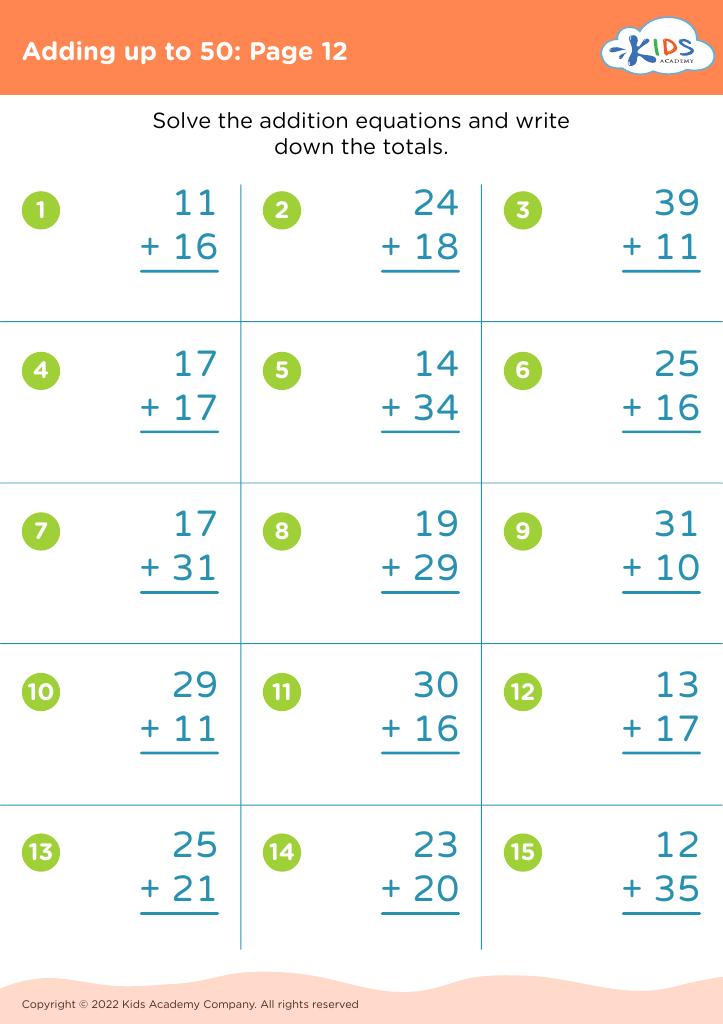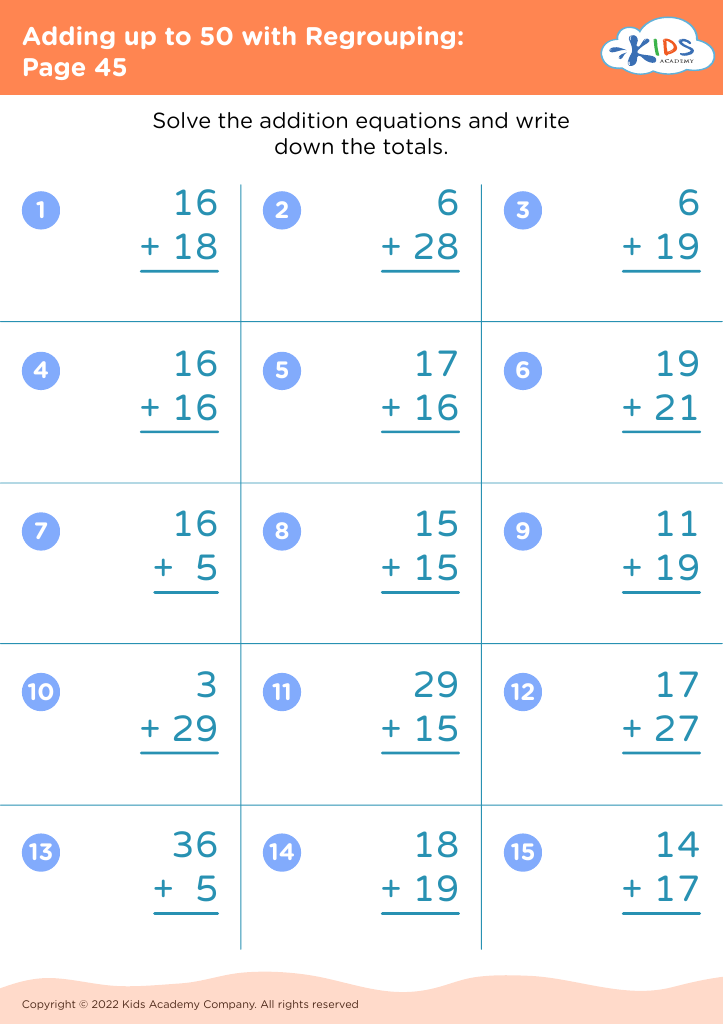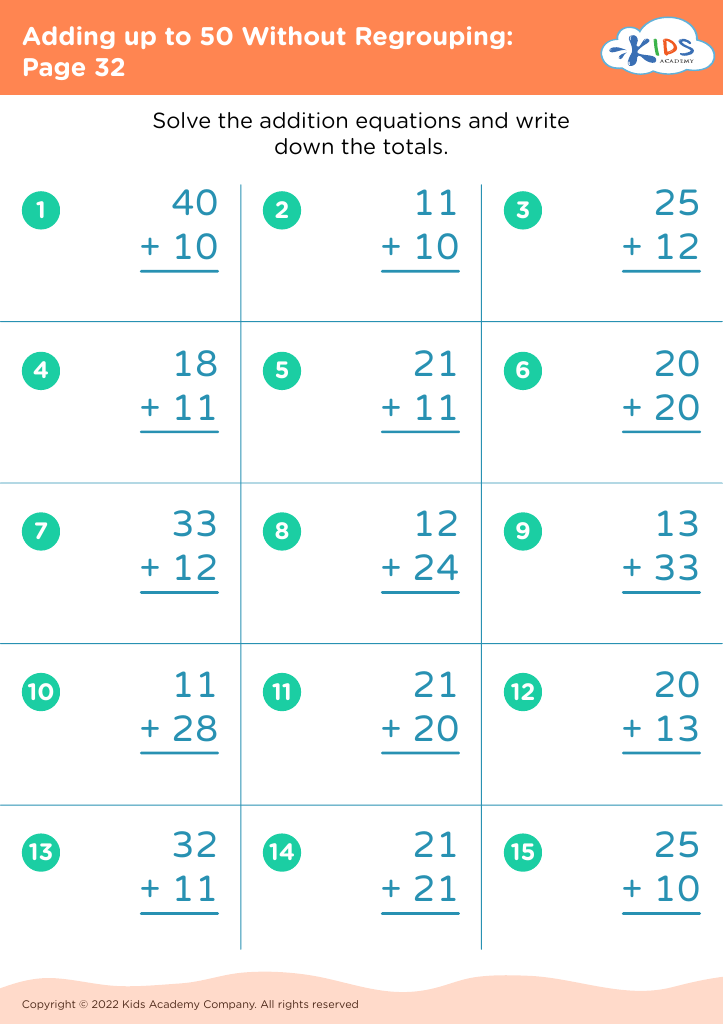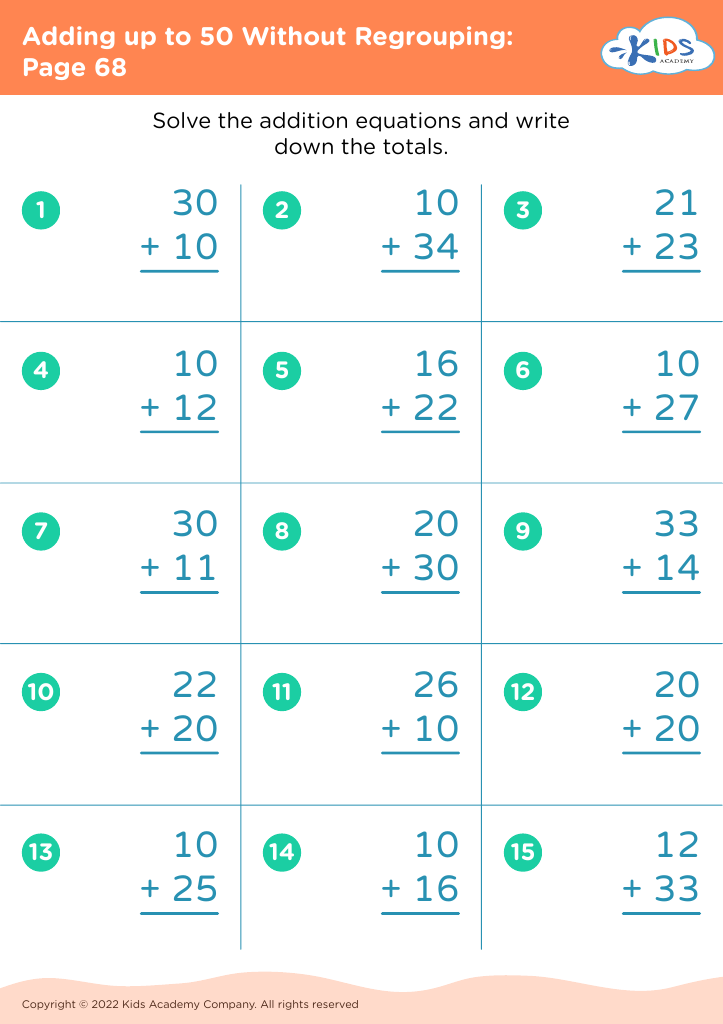Basic Addition Skills Adding up to 50 Worksheets for Ages 4-7
5 filtered results
-
From - To
Welcome to our collection of Basic Addition Skills worksheets, designed specifically for children ages 4-7! Using fun and engaging exercises, our worksheets make learning to add up to 50 a delightful experience. Aimed at young learners, these resources foster essential math skills while keeping learning enjoyable. With colorful illustrations and various activities, kids will practice addition in an interactive way, helping them build confidence in their mathematical abilities. Whether at home or in the classroom, our worksheets provide the ideal balance of challenge and support. Start your child's math journey today and watch them succeed in mastering basic addition!
Basic addition skills are foundational for young learners, significantly influencing their mathematical understanding and overall academic success. For children aged 4-7, mastering addition up to 50 is crucial as it lays the groundwork for more complex mathematical concepts they will encounter later in their education.
Firstly, addition skills enhance cognitive development. When children practice adding numbers, they engage in critical thinking and problem-solving, promoting cognitive growth essential for their age group. Additionally, strong addition skills boost confidence in mathematical abilities, fostering a positive attitude toward learning.
Moreover, recognizing numbers and understanding simple addition encourages children to make real-life connections. For instance, when children add items or count during play, they begin to see the relevance of math in everyday experiences, making learning more engaging and meaningful.
Parents and teachers play critical roles in this development. By encouraging practice and providing supportive resources, they can cultivate a solid mathematical foundation. This foundational knowledge not only prepares children for future academic challenges but also equips them with skills essential for functioning in day-to-day life, from shopping to time management. Ultimately, investing time and resources in basic addition skills is vital for creating successful, enthusiastic learners.




















